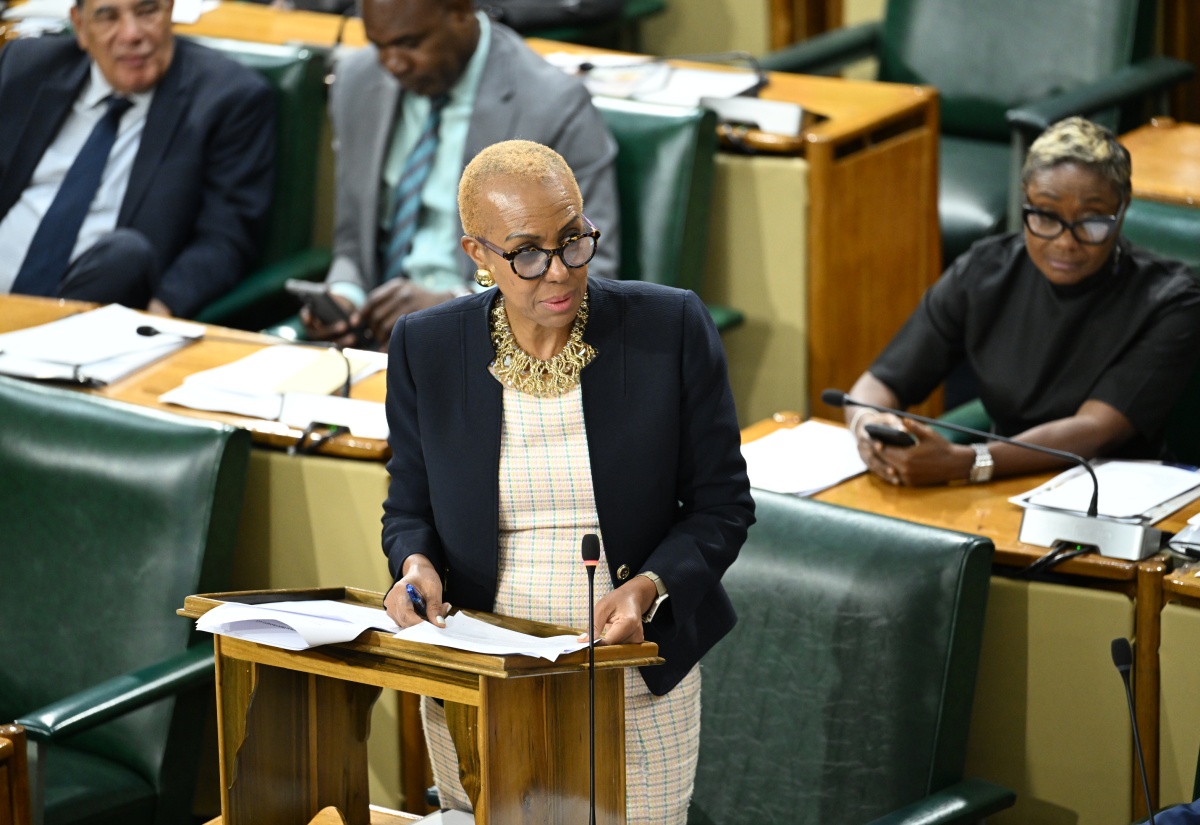House of Representatives Approves Public Procurement (Amendment) Regulations, 2025
By: , June 27, 2025The Full Story
The House of Representatives, on Tuesday (June 24), approved the Public Procurement (Amendment) Regulations, 2025.
Minister of Finance and the Public Service, Hon. Fayval Williams, said the Regulations are a proactive response to Jamaica’s evolving public procurement landscape.
“They align the country’s procurement practices with international standards, improve confidence among stakeholders, and support Jamaica’s broader goals of sustainable development, institutional integrity, and fiscal prudence,” she said.
“As public procurement remains a cornerstone of national development, these reforms ensure the system is more robust, equitable, and capable of withstanding scrutiny, particularly in high stakes or emergency situations,” the Minister told the House.
Addressing the specific provisions, Mrs. Williams noted that Regulation 2C has been updated to incorporate the term ‘competition threshold’, aligning the Regulations with the terminology introduced in the Public Procurement Amendment Act.
She explained that the competition threshold enables a procuring entity to tailor the level of competition to the specific circumstances of the procurement, including the option to restrict competition based on the estimated contract value.
“It is an improvement and replacement of the term ‘procurement method threshold’. Regulation 7 has been repealed and replaced to take account of the treatment by the primary legislation of procurement in emergency circumstances, and in relation to single-source procurement. It clarifies the onus on procuring entities to satisfy themselves that value for money will be achieved before awarding a procurement contract by single-source procurement,” Mrs. Williams said.
Regulation 8 is amended to reflect the updated ‘competition threshold’ terminology and now outlines procurement methods in accordance with the thresholds detailed in Part 1 of the First Schedule, which addresses works, and Part 2, which pertains to goods and services.
The term ‘value limit threshold’ has also been replaced with ‘competition threshold’ to ensure consistency across the Regulations.
“Regulation 17 is amended to clarify that, for the purposes of assessing a bidder’s eligibility, the determination of its tax compliance is to be made on the date of the deadline for bid submissions and not the date on which the supplier submits the bid.
“The Regulation also recognises that some suppliers have no tax obligations in Jamaica or elsewhere. In those cases, once verified by Tax Administration Jamaica (TAJ), tax compliance requirements will not apply to those bidders,” Mrs. Williams stated.
Regulation 33, which addresses advance payment and security, has been repealed and replaced with clearer provisions detailing the procedures for submitting advance payment requests and the conditions under which such can be made.
Additionally, Regulation 33 now stipulates that if a contractor defaults on the completion of a procurement contract, the procuring entity reserves the right to forfeit the advance payment security in accordance with the terms outlined in the security arrangement.
“Regulation 39 is also amended to allow for shorter timeframes for bid notifications, upon request, in writing to the Public Procurement Commission. This now allows procuring entities to have greater flexibility in their bid advertisement timeline prior to that actual solicitation process, and once it is deemed necessary or properly justified,” Mrs. Williams stated.
The Minister also informed the House that the First Schedule has been repealed and replaced, and now outlines the levels of competition and corresponding procurement methods applicable to works, goods, and services.
“Take for instance, in the procurement of contracts for works, where open international level of competition may be deployed for the procurement methods, the following methods may be used: international competitive bidding, national competitive bidding, requests for proposals with consecutive negotiation, and requests for proposals without negotiation,” she said.
“Open national level of competition can be done using national competitive bidding, requests for proposals with consecutive negotiation, and the requests for proposals without negotiation procurement methods. Additionally, restricted levels of competition for works can be done through restrictive bidding with a minimum of three selected suppliers,” Mrs. Williams further stated.
She noted that these measures are expected to enhance decision-making accuracy and transactional efficiency, while upholding the principles of fair competition.
Meanwhile, Minister Williams said the Second Schedule of the Regulations has been revised to define procurement contract approval limits, now categorised into three tiers with updated contract values.
She explained that Tier 1 contracts, valued $60 million or less, require the approval of the head of the procuring entity.
Tier 2, valued at more than $60 million and up to $100 million, require the approval of both the head of the procuring entity and the Public Procurement Commission.
Tier 3 contracts, valued more than $100 million, require the approval of the head of the procuring entity, the Public Procurement Commission, and the Cabinet.


